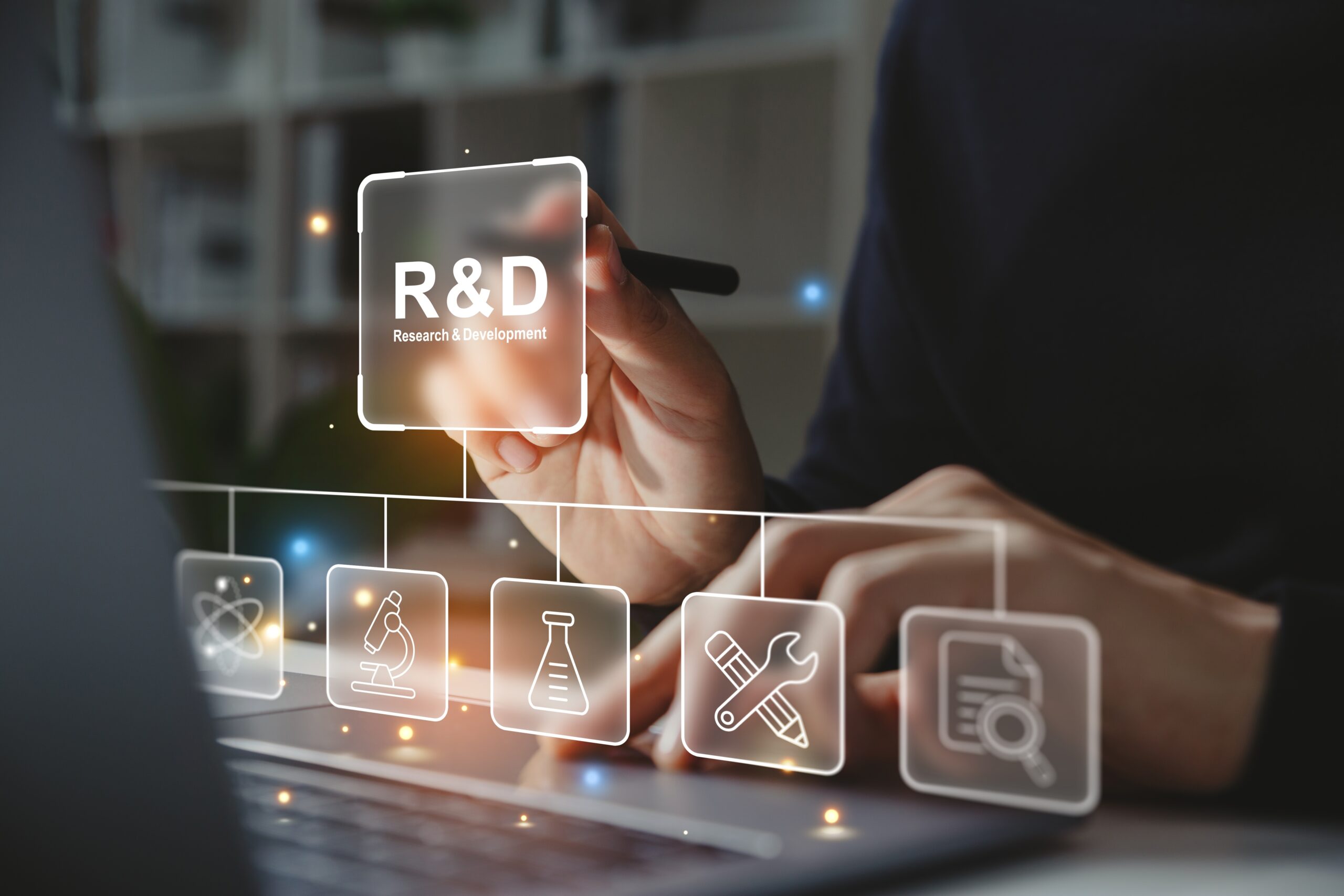Research and Development (R&D)
- Home
- Research and Development (R&D)
MyTech Solutions
R&D Department in MyTech Solutions
MyTech Solutions, an organization located in Edmonton, Alberta, has a broad range of scientific operations. To create an R&D department, the diverse fields of agriculture, food, oil and sands, soil science, drug and alcohol testing, climate change, and forestry health should be organized into coherent research themes.

R&D Department: Pioneering Applied Science for Alberta’s Core Industries
Our Research & Development department is the engine of innovation at MyTech Solutions. Located in the heart of Edmonton, we leverage cutting-edge scientific methods and a deep understanding of local ecosystems to drive progress across Alberta’s key sectors. Our mission is to transform complex challenges into practical, data-driven solutions that ensure sustainability, enhance productivity, and safeguard public health.
Undergoing Research & Projects
Research 1: Sustainable Resource Management & Environmental Science
This research and development focuses on the intersection of industrial activity and environmental stewardship. Our projects aim to develop innovative solutions for responsible land use and environmental health.
- Soil Remediation & Reclamation in the Oil and Sands This project investigates novel biological and chemical methods for restoring soil quality in areas impacted by oil and gas operations. We are developing proprietary soil conditioners and microbial blends to accelerate reclamation processes, ensuring the long-term health and biodiversity of these vital ecosystems.
- Climate Change Impact on Forestry Health & Ecosystem Resilience We are studying the effects of a changing climate on Alberta’s forests, focusing on the spread of pests and diseases, and the overall resilience of tree species. Our research utilizes satellite imagery and on-the-ground sampling to model future forest health and develop early-warning systems for forestry managers.
- Water Quality & Contaminant Transport Modeling This project is dedicated to understanding how industrial and agricultural activities affect water bodies across Alberta. We are developing advanced models to predict the transport of contaminants, such as hydrocarbons and pesticides, to inform better water management and protection strategies.
- Bio-monitoring for Environmental Health Assessment We are researching the use of specific plant and animal species as indicators of environmental health. This bio-monitoring approach allows us to rapidly assess the health of an ecosystem and detect the presence of pollutants, providing a cost-effective alternative to traditional chemical testing.
Research 2: Food & Agricultural Innovation
This research area is dedicated to enhancing the productivity, safety, and sustainability of Alberta’s agricultural sector. Our work supports farmers and food producers with scientific insights to meet growing demands.
- Precision Agriculture & Nutrient Management This project is developing new methods for site-specific soil analysis and nutrient delivery. By using advanced sensor technology and data analytics, we help farmers optimize fertilizer application, reduce environmental runoff, and increase crop yields with greater efficiency.
- Food Safety & Quality Assurance We are researching rapid detection methods for contaminants and pathogens in food products. Our team is developing advanced molecular techniques to ensure the integrity of the food supply chain, from farm to table.
- Genomics for Crop Resilience & Disease Resistance This project explores the genetic makeup of key Alberta crops to identify genes that confer resistance to pests and diseases. The goal is to provide plant breeders with the data needed to develop more robust and high-yielding crop varieties for a changing climate.
- Nutritional Profiling of Locally Sourced Foods We are conducting a comprehensive analysis of locally grown foods to understand their unique nutritional profiles. This research supports local food producers by providing scientific data that can be used for marketing and consumer education, highlighting the benefits of eating local.
Research 3: Public Health & Forensic Science
This research and development is centered on applied research that supports public safety and health through advanced analytical testing and methodologies.
- Biomarker Research for Drug & Alcohol Testing This ongoing research focuses on identifying and validating new biomarkers for more accurate and less invasive drug and alcohol testing. We are exploring alternative sample types and developing a more comprehensive understanding of substance metabolism to improve forensic and clinical testing protocols.
- Toxin & Illicit Substance Identification We are developing advanced analytical methods, including mass spectrometry and chromatography, to rapidly and accurately identify novel toxins and illicit substances. This work directly supports law enforcement and public health agencies in responding to emerging threats and ensuring public safety.
Innovation and Prototyping Labs
- Set up labs where prototypes of surveillance systems are built and tested in controlled environments.
- Conduct trials with various technologies (drones, sensors, AI) to refine their performance before deployment.
- Collaborate with universities or tech companies to co-develop new solutions.
Research Goals
- Short-term: Improve existing systems, enhance AI capabilities, and develop more efficient surveillance drones.
- Mid-term: Focus on integrating autonomous systems, building cloud-based remote monitoring, and enhancing multi-sensor data fusion.
- Long-term: Explore advanced technologies like quantum computing for security, bio-metric identification, and predictive threat analytics.
Collaboration and Funding
- Work with industry partners, government agencies, and academic institutions to stay ahead of emerging trends and receive support for large-scale projects.
- Seek funding through innovation grants or security-focused research initiatives.
Product Development Cycle
- Conceptualization: Identify a security problem and propose innovative solutions.
- Research and Design: Collaborate with engineers, data scientists, and analysts to design technology solutions.
- Prototyping: Build and test prototypes of hardware or software solutions.
- Pilot Programs: Deploy the systems in a small-scale or controlled environment for testing.
- Feedback and Iteration: Gather feedback from early deployments and fine-tune the product.
- Commercialization: Launch the solution on the market, ensuring scalability, cost-effectiveness, and ease of use.
Performance Metrics
- Innovation Pipeline: Number of new technologies or systems in the R&D pipeline.
- Efficiency: Time from concept to prototype to commercial launch.
- Cost Savings: Reduction in operational costs due to automation or improved surveillance efficiency.
- Impact on Security: Measurable improvements in security outcomes, such as quicker response times or reduced incidents.


